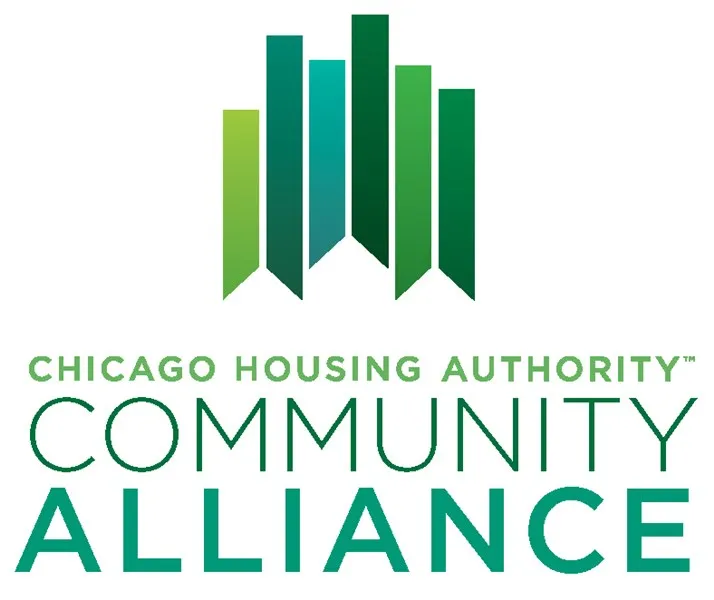If you’re a private landlord in Cook County, a prospective tenant may have asked whether you accept “Section 8” for partial rent payments. Chicago landlords have been prohibited from refusing to lease to tenants based on their “source of income” for more than 20 years in the City of Chicago. More recently, the prohibition extended to all of Cook County. In other words, every Cook County landlord potentially needs to understand how Section 8 operates, specifically that portion of Section 8 relating to housing choice vouchers. These vouchers are, in effect, rent subsidies designed to enable low-income tenants to secure housing at any private apartment. The following FAQ provides a concise overview of the program of the Housing Choice Voucher program as administered by the Chicago Housing Authority.
What does “Section 8” refer to, and what are its origins?
Section 8 takes its name from Section 8 of the Housing Act of 1937, a significant piece of New Deal legislation enacted during the Great Depression. Under Section 8 of the Housing Act (which has been repeatedly amended through the years), the federal government extends both renter-based and project-based assistance to low-income households. Renter-based assistance travels with the tenant and enables a family to move from one privately-owned apartment to another without losing the rent subsidy. Project-based assistance is tied to a specific property and benefits only the residents who live at that location.
In 1983, the Department of Housing and Urban Development (HUD), acting under Section 8 of the Housing Act (as amended by the Housing and Community Development Act of 1974), implemented the first federal housing choice voucher program to provide tenant-based rent subsidies to families seeking housing in private sector apartments. The housing choice vouchers were administered through local public housing agencies, such as the Chicago Housing Authority.
How do low-income families obtain assistance through the Chicago Housing Choice Voucher Program?
To obtain assistance through the Housing Choice Voucher (HCV) program, as administered by the Chicago Housing Authority (CHA), prospective renters in Chicago must earn a low income and get lucky during one of the rarely-held waiting-list lotteries, and typically endure a long wait. Presently, the waiting list for Housing Choice Vouchers is so long that some aspiring Section 8 Chicago renters have waited for well over a decade. In 2008, following a lengthy citywide outreach campaign and the submission of tens of thousands of registration forms, approximately 40,000 prospective Chicago tenants were randomly selected from a lottery and assigned a position on a waiting list. As funds become available, aspiring program participants are pulled from the waiting list and screened for eligibility, which entails a personal interview with all adults residing in the household, the satisfaction of various income and other criteria, layers of verifications (to weed out fraudsters), and the passing of a criminal background check (for persons 18 and older). The method for computing family income includes considering a wide range of criteria, with various deductions (similar in general respects to those contained in the federal tax code).
A participating family’s income may not exceed 50 percent of the median income for the area, adjusted for family size. (The specific income limits are published annually by HUD.) Prospective renters who meet the eligibility requirements and secure private housing typically pay 30% of their adjusted income toward the rent, while the federal government pays the balance through the CHA. Meanwhile, there’s been no lottery since 2008, and the waiting list has been closed since that time.
In a nutshell, how does the Housing Choice Voucher program work in the Chicagoland area?
Eligible tenants locate a desirable rental in the private Chicago apartment rental market and submit to the landlord’s standard application process. If approved by the landlord, the rental apartment is inspected by a representative of the CHA to ensure that the rental meets basic housing quality standards. If so, the requested CHA reviews the monthly rental rate to ensure that it qualifies as a fair market rent based on such factors as size, location, rental type, condition, and amenities. Once the rental rate is approved, the tenant signs the landlord’s standard lease and pays a predetermined portion of the rent (typically at least 30% of the family’s adjusted income). Meanwhile, the landlord enters into a side agreement with the CHA in which, among other things, the CHA agrees to pay the balance of the monthly rent directly to the landlord. The landlord agrees, among other things, to maintain the apartment in accordance with HUD’s housing quality standards, to charge a reasonable rent, to consent to audits relating to the tenancy, and to cooperate with “equal opportunity compliance reviews.”
May a landlord refuse to accept Chicago tenants with a Housing Choice Voucher?
Not in Cook County. On May 8, 2013, the Cook County Board approved a resolution that prohibits landlords from rejecting tenants based on their Section 8 status. Formerly, the Illinois Fair Housing Law precluded landlords from denying applications on the basis of such immutable characteristics as race, ethnicity, religion, sex, age, disability, presence of children, or sexual orientation. “Source of income” now joins the list of protected classes in Cook County. The resolution was intended to encourage economically disadvantaged citizens to move into the suburbs and decrease the high concentrations of poverty-stricken areas. The Cook County resolution, which took effect in August 2013, extends to the suburbs a prohibition that has already existed in the City of Chicago for the past twenty years.
Is it possible for a Chicago tenant to fail an application process on a basis other than discrimination?
Yes. The apartment owner or manager may utilize his or her standard application process when evaluating a prospective tenant. For example, if it is the owner's or manager's practice to conduct a credit check on all applicants and/or to contact past landlords for references to consider such background factors as bill payment history, respect for landlord property, relations with co-tenants, compliance with essential conditions of the tenancy, the owner or manager may undertake those processes when evaluating the prospective tenant's application.
What happens after a tenant passes the landlord’s application process?
Suppose the prospective Housing Choice Voucher tenant passes the application process. In that case, the landlord completes a so-called Request For Tenancy Approval (RTA) (a copy is available here) and submits it to the CHA. The landlord is also required to submit a W-9, proof of ownership (typically, a recorded deed), a management agreement (if applicable), and (for corporate entities) a certificate of good standing. The owner must also certify the most recent rent charged for the rental and explain any difference between the previous rent and the rent now being requested.
After the landlord submits the RTA, the CHA conducts a criminal background check, credit check, and foreclosure check on the owner and verifies that all property taxes are current. The CHA may also disqualify a prospective landlord for numerous other reasons, including, but not limited to, a history of non-compliance with Section 8 obligations, involvement in drug-related activity, evidence of fraud or corruption, or violent behavior toward CHA employees. Meanwhile, about three to five days after the RTA is received, a CHA representative contacts the landlord to schedule a so-called Housing Quality Standards (HQS) Inspection, typically occurring about seven to ten days after the RTA is received. The owner is not required to pay for the inspection. The CHA offers prospective landlords an HQS Self-Inspection Checklist (which presumably resembles the real thing), a copy of which is available here. For the obsessed landlord, the CHA offers a more voluminous HQS Guidebook.
If the rental passes the HQS inspection, the CHA reviews the requested rent to ensure consistency with prevailing market rates based on size, location, type of rental apartment, property condition, and amenities. (Allowance is made for utilities.) If the rent is approved, landlords who are new to the Housing Choice Voucher program are then required to submit additional paperwork and attend a so-called Owner Briefing at one of two Chicago locations. The owner then signs the lease with the tenant and enters into a “Housing Assistance Payment” (or HAP) contract with the CHA. The HAP contract requires the inclusion of a separate addendum to the lease (a copy of which is contained within the HAP contract itself). Payments theoretically begin ten days after the leasing documents have been signed. The CHA’s housing assistance payments are mailed to the landlord at the beginning of each successive month.
How rigorous is the CHA inspection process?
All apartments leased to voucher holders must meet a series of health and safety rules known as the Housing Quality Standards. The rental is inspected before the initial lease signing and then at least once annually. The owner (or owner’s representative) must be present during the inspection to provide access to major building systems. The actual inspection takes between 20 and 45 minutes, and the inspection results are made known to the landlord within seven days. There are 13 key aspects of housing quality covered during the inspection, as follows:
- Sanitary facilities
- Food preparation and refuse disposal
- Space and security
- Thermal environment
- Illumination and electricity
- Structure and materials
- Interior air quality
- Water supply
- Lead-based paint
- Access
- Site and neighborhood
- Sanitary condition
- Smoke detectors.
If the apartment fails the inspection, the landlord has limited time to make the appropriate repairs and request a re-inspection. If it fails to do so, then the CHA directs the tenant to find a different rental. Suppose the apartment passes the inspection and a lease is signed. In that case, the landlord must permit the CHA to return for additional inspections at least once annually, provided the tenant remains in the rental. If the landlord does not correct any identified deficiencies during the specified time following a re-inspection, the CHA rent subsidy will be abated during the period that the repairs were delinquent (although the tenants will still be required to pay their share of the rent). At the discretion of the CHA, the HAP contract may even be terminated.
May a Chicago tenant be required to make a security deposit or pay a “move-in” fee?
Yes. So long as the landlord treats the prospective tenant in the same manner as non-voucher tenants, no restrictions are imposed on security deposits.
Does the voucher expire at the termination of a one-year lease? If not, may the landlord raise the apartment rent?
Because family sizes and job locations often change, the CHA recognizes the need for voucher-holders to find new apartments. Accordingly, a family is not divested of its right to participate in the HCV program at the termination of the first annual lease year (although every family is required to submit to income verification at least once annually). As a result, a family receiving assistance (and still eligible for future assistance) may relocate while remaining in the program. Alternatively, the family may renew the existing lease, even if the landlord requires an increase in monthly rent, provided that the underwriting criteria are satisfied, just as they were the first time. The CHA may reassess the reasonableness of the monthly rent at any time after the lease is signed, however, and is required to make a reassessment of the fair market rent decreases by five percent or more at least sixty days before the anniversary of the lease or any renewal.
Once a lease is signed, must a tenant be treated differently from a “market rate” tenant once a lease is signed?
No. A tenant in the HCV program is entitled to all the rights and is subject to the same responsibilities as every other tenant. Tenants who fail to pay the rent or otherwise violate the lease may be evicted just like any other tenants. (When HCV tenants default, the CHA continues to pay the subsidized portion of the rent up until an eviction order is entered.)
Has Domu received feedback from Chicago landlords about the Chicago Housing Choice Voucher program?
We asked a number of local landlords to share their assessments of the HCV program. Everyone we queried was reluctant to answer in anything other than vague generalities. From what we could gather, however, it appears that the CHA pays promptly, that the burdens imposed by the inspection process are minimal, and that lawsuits alleging discrimination are few and far between.




